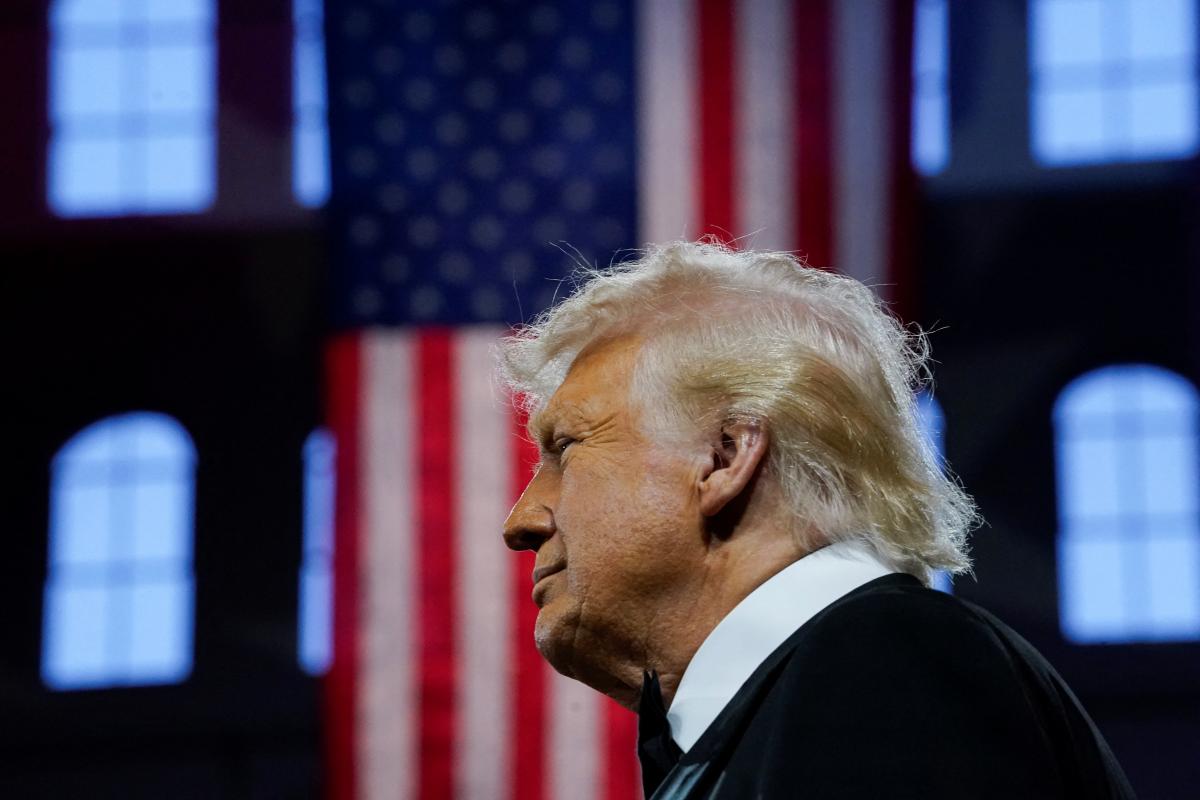US stocks dropped on Tuesday for a fourth straight trading day since Trump’s tariffs announcement last week, with the S&P 500 closing below 5000 for the first time in almost a year. The index is now 18.9% below its most recent high on February 19, close to the 20% decline that defines a bear market.
S&P 500 companies have lost $US5.8 trillion ($NZ10.5 trillion) in stock market value since Trump’s tariff announcement last week, the deepest four-day loss since the benchmark was created in the 1950s, according to LSEG data.
Global markets had previously posted gains on hopes that Trump might be willing to negotiate down the array of country and product-specific trade barriers he is erecting around the world’s largest consumer market.
The administration has scheduled talks with South Korea and Japan, two close allies and major trading partners, and Italian Prime Minister Giorgia Meloni is due to visit next week.
“These are tailored, highly tailored deals,” Trump said at a White House event on Tuesday, where he signed executive orders aimed at boosting coal production.
“We’ve had talks with many, many countries, over 70, they all want to come in. Our problem is, can’t see that many that fast.”
But the White House made it clear that country-specific tariffs of up to 50% would nevertheless take effect at 12.01am on Wednesday (Eastern Time), as planned.
Those tariffs will be especially steep for China, as Trump has ratcheted up duties on its imports to 104% in response to counter-tariffs Beijing announced last week.
China has refused to bow to what it called blackmail and has vowed to fight to the end.
Administration officials said they would not prioritise negotiations with the world’s No 2 economic power.
Trump’s sweeping tariffs have raised fears of recession and upended a global trading order that has been in place for decades.
“Right now, we’ve received the instruction to prioritise our allies and our trading partners like Japan and Korea and others,” White House economic adviser Kevin Hassett said on Fox News.
Trump’s tailor-made approach to negotiations with individual countries could take into account foreign and military aid as well as economic factors, White House spokeswoman Karoline Leavitt said.
Trump’s lead trade negotiator, Jamieson Greer, told Congress that his office is trying to work quickly but is not facing a particular deadline.
“The president has been clear, again, that he’s not doing exemptions or exceptions in the near term,” Greer told lawmakers.
China is bracing for a war of attrition, and manufacturers are warning about profits and scrambling to plan new overseas plants. Citing rising external risks, Citi cut its 2025 China GDP growth forecast to 4.2% from 4.7%.
Canadian Prime Minister Mark Carney said his country’s 25% tariff on some vehicles – a countermeasure to match Trump’s approach – will take effect immediately after midnight on Tuesday.
“President Trump caused this trade crisis – and Canada is responding with purpose and with force,” Carney said on X.
Canada and Mexico were exempt from the new round of tariffs Trump announced last week, but previous levies remained in place. Most goods that comply with the existing trade agreement between the three countries are not subject to those tariffs.
AMERICANS WORRIED ABOUT PRICES
Three out of four Americans expect prices to rise as Trump’s tariffs kick in, according to a Reuters/Ipsos poll.
Chipmaker Micron told customers it will impose a tariff-related surcharge starting on Wednesday, while US clothing retailers said they are delaying orders and holding off on hiring. Running shoes made in Vietnam that now retail for $US155 will cost $US220 when Trump’s 46% tariff on that country takes effect, according to an industry group.
Consumers are stocking up while they can. “I’m buying double of whatever – beans, canned goods, flour, you name it,” Thomas Jennings, 53, said as he pushed a shopping cart through the aisles of a New Jersey Walmart.
Broad-based price hikes may not show up immediately, as tariffs will not apply to goods that were already in transit before they took effect.
The market slide has prompted some business leaders, including those close to Trump, to urge him to reverse course.
Global oil prices steadied after falling to four-year lows.
The European Commission, meanwhile, is mulling counter-tariffs of 25% on a range of US goods including soybeans, nuts and sausages, though other potential items like bourbon whiskey were left off the list. Officials said they stood ready to negotiate.
The 27-member bloc is struggling with tariffs on autos and metals already in place, and faces a 20% tariff on other products on Wednesday.
Trump has also threatened to impose tariffs on EU alcoholic drinks.
European pharma companies, also fearful of the tariff fallout, warned the president of the European Commission, Ursula von der Leyen, in a meeting that Trump’s tariffs would expedite the industry’s shift away from Europe and toward the US.
